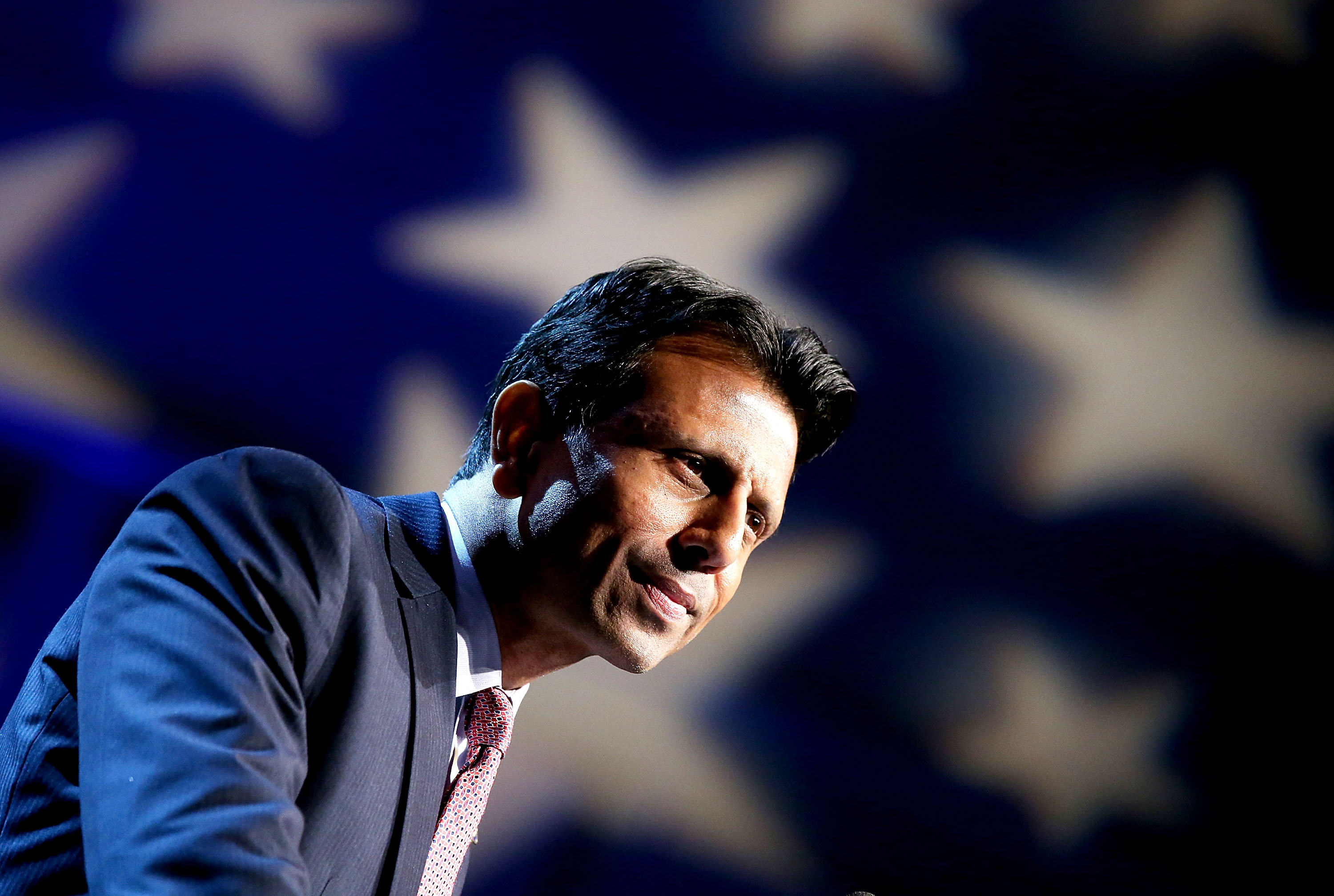Republicans are plotting economic disaster for 2016
Just look to what they've done to states they control


Since George W. Bush's presidency, Republican economic ideas have become drastically more conservative. Instead of massive tax cuts for the rich coupled with a general tolerance of the rest of government (or even new welfare programs), the party is now committed to much larger tax cuts coupled with eye-watering cuts to government.
Every Republican presidential candidate proposes staggering tax cuts heavily weighted toward the rich. Donald Trump would give the top one-thousandth of taxpayers $1.3 million apiece per year, while Ted Cruz would give them an even $2 million. Trump does favor preserving the welfare state, but he is a marked outsider in this respect. The entire rest of the party is committed to gigantic cuts to welfare, as shown by the budget formulated by House Republicans. Their most recent plan would slash $5.3 trillion in spending over a decade, 69 percent of which would come from programs for the needy.
The party's intellectual apparatus (distinct from the Trumpist insurgency) has more-or-less fully regressed to an economic libertarianism straight out of the 1920s. They view basically all government programs outside of the military and the courts as illegitimate, to be slashed or eliminated wherever possible. The only problem with this is that when you try it, the results are immediate disaster.
The Week
Escape your echo chamber. Get the facts behind the news, plus analysis from multiple perspectives.

Sign up for The Week's Free Newsletters
From our morning news briefing to a weekly Good News Newsletter, get the best of The Week delivered directly to your inbox.
From our morning news briefing to a weekly Good News Newsletter, get the best of The Week delivered directly to your inbox.
Republicans haven't been able to fully implement their plan of tax and service cuts on the federal level, but they have tried it in a few places on the state level. Louisiana under Gov. Bobby Jindal has had it the worst. Jindal's massive cuts to education and services were not nearly enough to cover his gigantic tax cuts, and draining every rainy day fund in the state only delayed the day of reckoning. Eventually the results were so disastrous that the unthinkable happened — a Democrat replaced Jindal. Now Gov. John Bel Edwards is scrambling to deal with the most extreme budgetary emergency of any state government in decades, working feverishly just to keep the state from literal financial collapse.
Kansas is also suffering from Republican quack economics. Gov. Sam Brownback (who barely scraped through re-election in 2014 and now sits at a 21-percent approval rating) tried the same tricks as Jindal, though to a somewhat lesser degree, and the results were similar: a huge budget deficit with none of the promised explosive growth or job gains. Now Kansas conservatives are running into problems with the state's Supreme Court, which found legal problems with the distribution of education cuts. Their solution: Attack the justices politically, by drawing up a new impeachment law and trying to get them thrown out in an upcoming confirmation election.
It's the same story in Wisconsin with both deficits and lousy economic performance. Gov. Scott Walker's major innovation has been an effort to basically destroy the Wisconsin state university system with drastic cuts and the abolishment of tenure, which is already leading to serious problems at the flagship school in Madison.
However, it could have been worse for all these states. The federal government, with its grants, its spending on social programs, and its employment of in-state government workers and contractors, provides a buffer of spending state governments cannot cut. For example, Louisiana gets over 40 percent of its state budget from the feds, as well as $5,917 per person in social spending, $3.5 billion in federal contracts, and $5.3 billion in compensation paid to almost 68,000 federal workers (as of the most recent data). That's $48 billion in income against $39 billion paid in federal taxes (other states don't make out so well).
A free daily email with the biggest news stories of the day – and the best features from TheWeek.com
This means that the results would be far more disastrous should Republicans get to implement their ideas on a federal level. Great chunks of the federal programs — food stamps, federal health programs, the Earned Income Tax Credit, and so on — that have provided inadequate but vital economic stabilization would be cut or eliminated altogether.
The results would be just as what happened on the state level, only worse.
It took many years for Republicans to talk themselves out of the fact that Herbert Hoover's presidency was a disastrous failure, but with the exception of Trump, Hooverism is where they stand. It's an ideology that can gain wide popularity only insofar as it is not actually tried on a wide scale. It turns out that a vision of government that was already outdated a century ago (when farmers were over a quarter of the workforce) is not very well-suited to a modern economy. It's just too bad the American people might have to be the collateral damage in re-learning that lesson.
Ryan Cooper is a national correspondent at TheWeek.com. His work has appeared in the Washington Monthly, The New Republic, and the Washington Post.
-
 Why is Trump’s alleged strike on Venezuela shrouded in so much secrecy?
Why is Trump’s alleged strike on Venezuela shrouded in so much secrecy?TODAY'S BIG QUESTION Trump’s comments have raised more questions than answers about what his administration is doing in the Southern Hemisphere
-
 Vance’s ‘next move will reveal whether the conservative movement can move past Trump’
Vance’s ‘next move will reveal whether the conservative movement can move past Trump’Instant Opinion Opinion, comment and editorials of the day
-
 Why recognizing Somaliland is so risky for Israel
Why recognizing Somaliland is so risky for IsraelTHE EXPLAINER By wading into one of North Africa’s most fraught political schisms, the Netanyahu government risks further international isolation
-
 Bari Weiss’ ‘60 Minutes’ scandal is about more than one report
Bari Weiss’ ‘60 Minutes’ scandal is about more than one reportIN THE SPOTLIGHT By blocking an approved segment on a controversial prison holding US deportees in El Salvador, the editor-in-chief of CBS News has become the main story
-
 Has Zohran Mamdani shown the Democrats how to win again?
Has Zohran Mamdani shown the Democrats how to win again?Today’s Big Question New York City mayoral election touted as victory for left-wing populists but moderate centrist wins elsewhere present more complex path for Democratic Party
-
 Millions turn out for anti-Trump ‘No Kings’ rallies
Millions turn out for anti-Trump ‘No Kings’ ralliesSpeed Read An estimated 7 million people participated, 2 million more than at the first ‘No Kings’ protest in June
-
 Ghislaine Maxwell: angling for a Trump pardon
Ghislaine Maxwell: angling for a Trump pardonTalking Point Convicted sex trafficker's testimony could shed new light on president's links to Jeffrey Epstein
-
 The last words and final moments of 40 presidents
The last words and final moments of 40 presidentsThe Explainer Some are eloquent quotes worthy of the holders of the highest office in the nation, and others... aren't
-
 The JFK files: the truth at last?
The JFK files: the truth at last?In The Spotlight More than 64,000 previously classified documents relating the 1963 assassination of John F. Kennedy have been released by the Trump administration
-
 'Seriously, not literally': how should the world take Donald Trump?
'Seriously, not literally': how should the world take Donald Trump?Today's big question White House rhetoric and reality look likely to become increasingly blurred
-
 Will Trump's 'madman' strategy pay off?
Will Trump's 'madman' strategy pay off?Today's Big Question Incoming US president likes to seem unpredictable but, this time round, world leaders could be wise to his playbook
